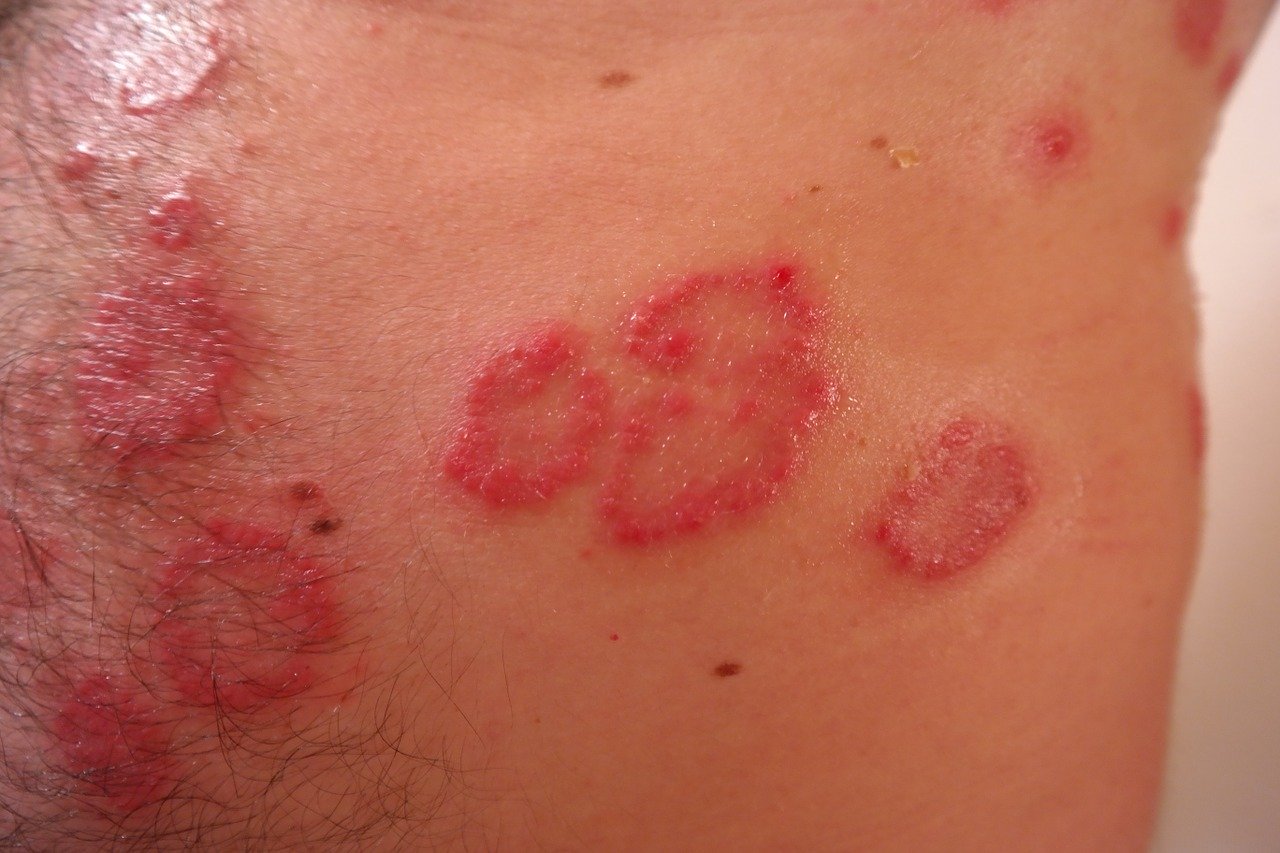In November 2019 researchers from the USA, Australia, UK and Canada published their review of the medical scientific literature to assess the effectiveness and safety of biofeedback for irritable bowel … Read more
Environmental factors as well as the gut microbiota may strongly influence the development of psoriasis and its progression
In March 2020 researchers from Italy, USA and Serbia published their review on the interactions between the skin, microbiome, gut microbiota and psoriasis. The researchers stated that psoriasis is alternatively … Read more
A vitamin or mineral deficiency or a severe reduction in carbohydrate intake may contribute to hair loss
In March 2019 researchers from Saudi Arabia and the USA published their review of the medical scientific literature to assess the role of vitamins and minerals in hair loss. A … Read more
Herbs and spices appear to have antioxidant, anti-microbial, and anti-inflammatory properties and they may in addition reduce the risk of developing chronic diseases, eg cardiovascular disease, neurodegenerative conditions, chronic inflammation, arthritis, cancer, obesity and diabetes type 2
In May 2019 researchers from Canada published their review of the medical scientific literature to identify and assess specific biomarkers in 25 herbs and spices, namely anise, basil, black pepper, … Read more
Although a strict gluten free diet in the absence of coeliac disease should not be started, a reduction of gluten content might be a valid option in individuals with irritable bowel syndrome
In December 2018 researchers from Italy published the results of their study to compare the effect of sourdough fermented products with traditional bread and pasta in individuals with irritable bowel … Read more
Durum wheat-based products may reduce symptoms experienced by individuals with non-coeliac gluten sensitivity
In March 2019 researchers from Italy published the results of their study to assess the effect of an organic durum wheat variety with those of standard commercial wheat in patients … Read more
Who needs calcium and/or vitamin D supplementation for the prevention of fragility fractures?
In April 2020 researchers from New Zealand published their review on calcium and/or vitamin D supplementation for the prevention of fragility fractures. The researchers stated that as vitamin D and … Read more
A low FODMAP diet has been recommended for inflammatory bowel disease and suggested for individuals with inflammatory bowel disease-like symptoms
In October 2019 researchers from Taiwan published their review of nutrition and diet in inflammatory bowel disease. The researchers stated that the incidence of inflammatory bowel disease has been increasing … Read more
Hand rubbing with sprayed alcohol-based hand rub/sanitizer is just as effective as rubbing with alcohol-based hand rub/sanitizer poured onto the palm of the hand to reduce bacterial counts on hands and may be an acceptable alternative hand hygiene method pending assessment in other settings and for other pathogens
In February 2020 researchers from the Infection Control Programme, WHO Collaborating Centre on Patient Safety in Singapore and Switzerland published the results of their study to assess whether sprayed alcohol-based … Read more
Use of a hand rub/sanitizer containing olanexidine gluconate has the potential to become an important means of preventing human norovirus infection
In March 2020 researchers from Japan published the results of their study to assess the effectiveness of a new hand antiseptic containing olanexidine gluconate against human noroviruses. The researchers stated … Read more
Supplementing the diet with a combination of multiple immune-supporting nutrients, including vitamins A, E, B6 and B12, folate, iron, copper and selenium but especially vitamins C and D and zinc, may improve immune function and reduce the risk of infection
In January 2020 researchers from the USA and Switzerland published their review on nutrients and the immune system. It has been established that multiple nutrients, including vitamins A, D, C, … Read more
Supplements have little to no effect on the risk of lung cancer and lung cancer mortality in healthy individuals, although vitamin A supplements appear to increase the risk of lung cancer and mortality in smokers or individuals exposed to asbestos, vitamin C the risk of lung cancer in women and vitamin E the risk of haemorrhagic strokes
In March 2020 researchers from Chile and Spain published their review of the medical scientific literature to establish whether supplementations of vitamins and minerals, alone or in combination, reduce the … Read more
It appears that probiotics are able to prevent antibiotic-associated diarrhoea
In February 2020 researchers from the USA published their review on how probiotics can prevent antibiotic-associated diarrhoea, which is a common side effect of antibiotic treatment. It is defined as … Read more
A vegetarian/vegan diet is effective in promoting a diverse ecosystem of beneficial bacteria to support both the human gut microbiome and overall health
In April 2019 researchers from Slovakia and the USA published a review on the effect of vegetarian and vegan diets on gut microbiota. Whilst humans are about 99.9% identical to … Read more
Although there are some health concerns concerning endurance exercise, it is generally regarded as safe
In April 2019 researchers from the USA published their review on whether endurance exercise is safe. The researchers stated that endurance exercise produces acute but not chronic increases in blood … Read more
Given that the benefit of taking paracetamol for relief of osteoarthritic joint pain is uncertain and potential safety issues have been raised, more careful consideration concerning its use is required
In April 2019 researchers from the UK, Belgium, Italy and Switzerland published their review on the benefits and harm of using paracetamol for osteoarthritic pain. Paracetamol is generally recommended for … Read more
Probiotics may be effective in children with infantile colic, irritable bowel syndrome, necrotizing enterocolitis, food allergy, and nonalcoholic fatty liver disease
In October 2019 researchers from Italy published their review on the effectiveness of probiotics in many common diseases in children. There is increasing evidence that probiotics may be of benefit … Read more
Foods high in dietary fibre and low in FODMAP (fermentable oligosaccharides, disaccharides, monosaccharaides, and polyols) provide relief from some of the gastrointestinal symptoms experienced with irritable bowel syndrome and constipation
In May 2019 researchers from Japan published their review on how specific foods can reduce symptoms of irritable bowel syndrome and constipation. Individuals with irritable bowel syndrome, or IBS as … Read more
Lactobacillus reuteri appears to be effective in treating colic in breastfed infants
In September 2019 researchers from Croatia published their review on the role of probiotics in the treatment of the most common gastrointestinal disorders, ie infantile colic, constipation, functional abdominal pain … Read more
Lactobacillus rhamnosus GG, may reduce abdominal pain in children with irritable bowel syndrome
In September 2019 researchers from Canada published their review of the medical scientific literature to assess the effect of probiotics on the use in children with abdominal pain disorders. A … Read more




















